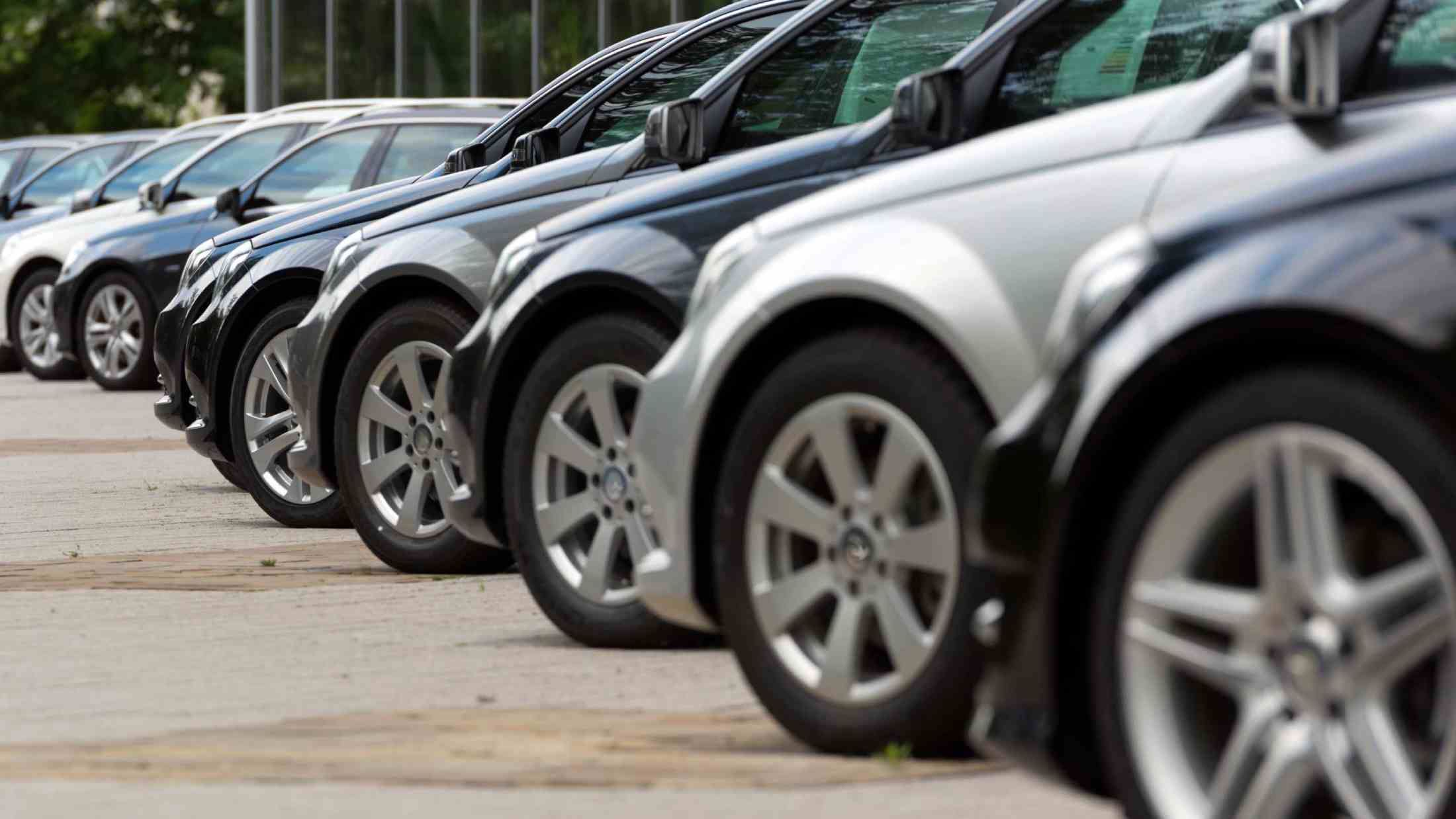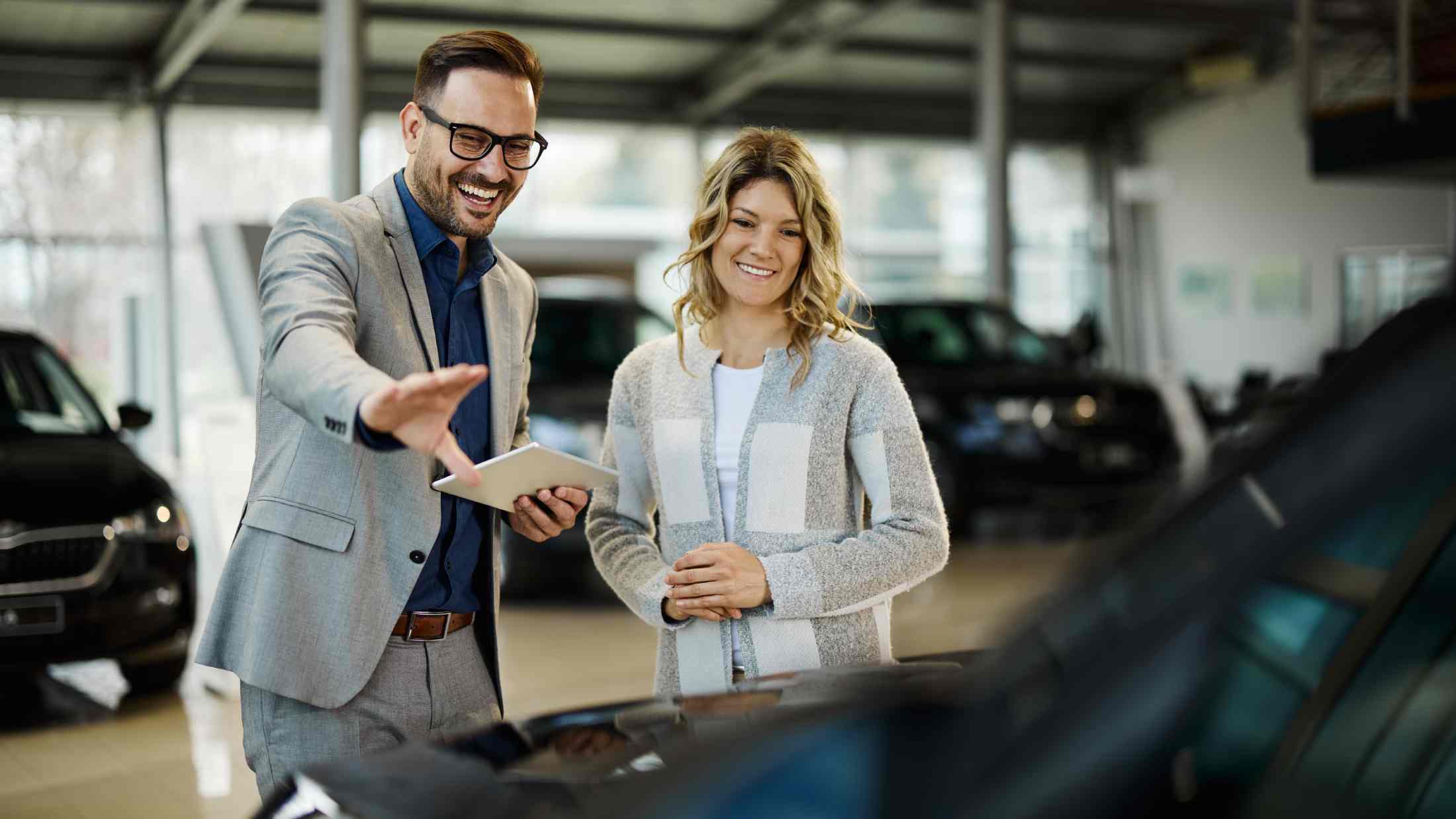We know that buying a brand new car isn't right for everyone. That's why here at AXA we're sharing our top tips on what to look for when you're buying a used car. Whether you need help with what to look out for or advice on how to buy, we've got you covered.
Where should I buy a used car?
There are plenty of places you can look for a used car, including through a dealer, an independent garage or a trader. But, what are the differences between them?
Dealership
A car dealership sells both new and used cars. Dealerships may provide maintenance services, sell spare parts and even process warranty claims.
Independent garage
Independent garages operate in a similar way to dealerships; however, these businesses aren’t franchised. They offer mostly the same services; however, the main difference is the scale on which they operate. It is often much smaller than a franchised dealership and serves a local area. Buying from a dealership is different from an independent garage. Independent garages are often cheaper due to having fewer overheads than bigger, franchised dealerships. The difference in size also means that dealerships have more choice in cars. However, independent garages build stronger relationships and a better rapport with customers thanks to their smaller size and local service area.
Trader
A trader is different from dealerships or independent garages. They source and buy cars for below trade value and then re-sell them for a profit.
How should I buy a used car?
Knowing the different ways to buy a car will help you get the best deal. You can buy used cars privately, from an auction, or online. Price, overall condition and legitimacy can vary depending on how you purchase your used car.
Buying privately
Buying a used car privately is a popular choice because it’s easier and quicker than going through a dealership. You may already know the person you’re buying the car from. This will make it easier to strike a personal connection with them and get the best deal.
From an auction
In a car auction, a series of different cars are put up for auction and sold off to the highest bidder. To purchase a car at auction, you will typically need to pay a deposit that is equal to 20% of your winning bid, or £1000, whichever is greater.
Online
Cars can be purchased online, but make sure you do your research on the site's credibility first. This option is suitable if you don't want to deal with a sales representative or use the auction process.
Pre-Purchase Checklist
It’s important to know what you need to check before you buy a used car. Below you’ll find just some of the key things you’ll want to do before you buy.
Check your documents
It is important that you do a document check when buying a used car. The most important of these is the V5C, also known as the registration document or the logbook. The V5C is so important because it confirms you own the car and has specific details for the vehicle. It will even say if the car has been modified, scrapped or written-off in the past.
Check the car's license plate to make sure the make and model of the car match the V5C. You should also check the car's Vehicle Identification Number (VIN) to make sure it matches the car's registration.
You can usually find this number on the outside of the vehicle, on the lower part of the windscreen, or printed on the chassis at the driver's door on some older vehicles. If you're buying privately, make sure the name and address of the registered owner match the details of the person you’re buying from.
Vehicle history check
It is a good idea to put any used car that you’re considering buying through a vehicle history check. Does the vehicle have an up to date MOT? Your seller should know this, but you can also check the MOT history of a vehicle through the Government's website.
If the car has had a lot of owners in a short period of time, this may indicate that there is something wrong with it. Investigate any mileage discrepancies as this will reveal if the car has been clocked – i.e., had the mileage clock deliberately run back.
Your history check should cover common reasons for breakdowns and MOT failures. It's a good idea to have an independent car review, inspection and valuation, too. You'll also want to know the average running costs for your car.
Query the seller
Asking the seller the right questions is important when you’re buying a used car. You should ask them if there is any outstanding finance in connection with the car, as it can’t be legally sold if there is. Always ask, as mentioned before, for the V5C and any other important documents that go along with the car. This way you can check the car's details for yourself. Also be sure to ask the seller if they are the registered keeper and if not, query why.
Valuing the vehicle
Once you've found a car that you like, you should get a second valuation for it. There are a number of ways you can do this through trusted car traders and dealerships. Doing so will ensure that you’re paying a fair price for the vehicle and aren’t being charged over the market value.
Viewing the car and checking for damage
Always check the car for any signs of damage prior to purchase. The average driver may not know exactly what to look for, but don't worry, we've got you covered.
Look out dents, scratches and general wear and tear. Take note of anything that signals serious damage or poor repair of previous damage. Follow up with the seller – these may be warning signs of a serious crash. In bright sunlight, check the body for uniform colour and paintwork. Also, and check all rubber seals and plastic trims.
Look at the gaps between each car panel - they should be uniform all around the car. If not, this means the car has had a replacement panel. It could also mean the car was in a crash big enough to knock the panel out of alignment. If possible, we advise having a professional look over your car for signs of damage.
Check tyre pressure, the fluid levels in the car, and ensure that the car's electrics are all working. The interior of the car should also be in a generally good condition for its age.
Check the mileage
The mileage on the car should match the records that were given to you by the seller. The mileage should also be consistent with what would be expected for a car of that age and appearance. If you’re in any doubts about the car's mileage, ask the seller and query any discrepancies.
Taking a test drive
When test driving a used car, you should be on the lookout for a few key things. Before starting up the car check underneath the oil cap. If you find a thick, white substance, there may be an issue with the head gasket or damage to the engine.
When you start driving, look out for excessive exhaust fumes and listen for unusual noises. There should be minimal fumes, and the engine should be quiet and pull smoothly. Ask to start the car cold – if the seller has already started the car for you, they may be trying to hide an issue.
Make sure the steering wheel doesn't squeal or judder and that the car doesn't pull to one side on a level stretch of road. Brakes should be able to stop the car in a straight line with no vibrations or rubbing noises when applied. There should also be no slippage from using the handbrake on a hill.
It is vital that you comprehensively check any car before buying it, for not only the safety of yourself and others but for your wallet too. Buying a used car is a big commitment. Ensure you're well protected with car insurance to cover your vehicle down the line.









